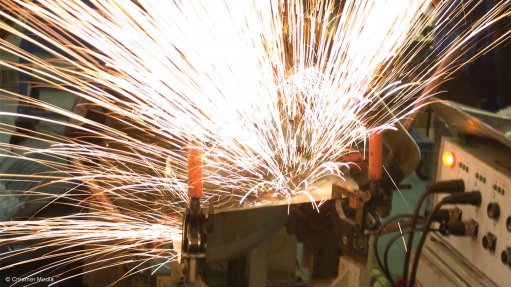
Photo by: Duane Daws
During the second quarter of the year, a three-month period described by the Manufacturing Circle (MC) as “weak and fragile”, the manufacturing sector appeared to have progressively moved to substituting jobs in favour of automation, making traditional manufacturing skills more redundant, while increasing the demand for skills related to robotics and mechanisation.
Citing earlier employment figures provided by Statistics South Africa (Stats SA), the organisation on Thursday reported in its second quarter manufacturing survey that South Africa’ s manufacturing industry shed 18 000 jobs as it redefined its employment environment through a persistent move towards automation.
While not a feature exclusive to the manufacturing industry, development economist Dr Iraj Abedian said increasing labour substitution was the result of a destabilised labour force environment and the subsequent response by manufacturers to try to protect production levels.
“This is an indication of what is happening in the manufacturing labour market, and in the economy as a whole. When labour relations become volatile, the typical response is to replace labour with machines, and the currently low interest rate environment reinforces this,” he said at the launch of the survey.
Survey participants indicated that, while workers had a poor attitude to productivity and work in general, these same workers had high expectations for significant wage increases.
Abedian’s comments came as the automotive industry was bracing itself for an open-ended nationwide strike on August 19 by members of the National Union of Metalworkers of South Africa, which planned to protest over pay increases for 30 000 assembly line workers.
The survey further showed that 68% of companies considered the availability of skills in the sector as less than adequate, while pertinent skills constraints included the lack of production management skills, a lack of engineering skills and skills shortages in maintenance, automation and robotics.
Several manufacturers added, at the survey launch, that the component manufacturing, welding and structural steel subsectors were particularly prone to the automation trend, and that it was becoming increasingly cheaper to buy and import production technologies as wages continue to rise.
Despite the destabilised labour environment and resultant job losses, the MC reported that, based on the most recent purchasing managers’ index data, signs of an improvement in manufacturing activity in South Africa, as well as in the manufacturing activity of some of its major trading partners, had been evident during the quarter.
A weak rand in the first and second quarters increased the price competitiveness of South African manufacturing firms on the global market, driving a rebound in the growth of export sales, with about 51% of respondents reporting an increase in exports.
The survey noted a strong demand for locally manufactured goods on the continent, specifically in Kenya and Nigeria, as well as in other emerging market economies.
Similarly, the value of domestic sales gained momentum over the quarter, with 66% of respondents indicating a positive growth in the value of national sales.
Meanwhile, Abedian indicated that increasing input costs were a “major concern” for local manufacturers, with over 90% of survey respondents recording higher input costs in the second quarter.
Similarly, imported input costs experienced upward pressures according to 86% of the surveyed firms, on the back of the weakening of the rand exchange rate.
“Other factors include high electricity prices and labour costs and, in this regard, one view that emerged from the survey pointed to the fact that the subdued domestic growth restrained the extent to which firms could pass on the costs associated with higher input prices.
“If this situation prevails, then the industry will be less profitable going forward,” Abedian commented.
Further, 77% of surveyed manufacturers indicated that they did not benefit from government’s local procurement programme and did not incorporate any potential benefits from the programme into plans to maintain growth in their respective manufacturing concerns.
“Many find this programme irrelevant,” he said.
Looking ahead, the survey found that, while the short-term outlook for manufacturing conditions had worsened somewhat, respondents’ medium-term expectations were upbeat.
Most surveyed firms expected “fragile” manufacturing conditions to continue in the next six months on the back of elevated input costs; poor performances by South Africa’s primary mining and agriculture sectors; aggressive foreign competition; logistics and transport constraints; and ineffective volume planning, owing to erratic demand.
“However, for the two years ahead, most respondents foresee improved manufacturing business conditions,” Abedian said.
Results from the survey were compiled from the responses of 68 South African manufacturing firms, most of which employed up to 500 people and had a turnover of between R300-million and R999-million each.